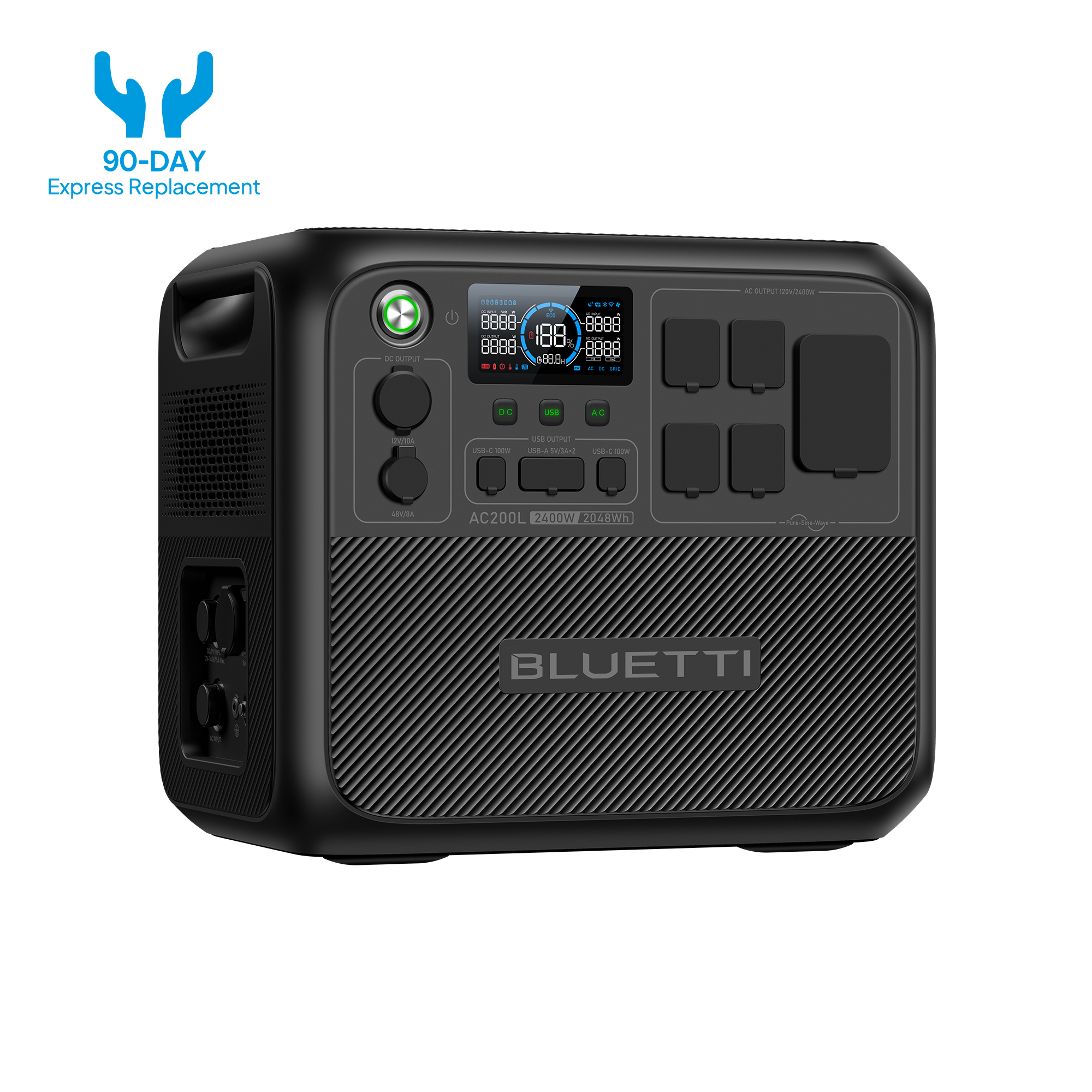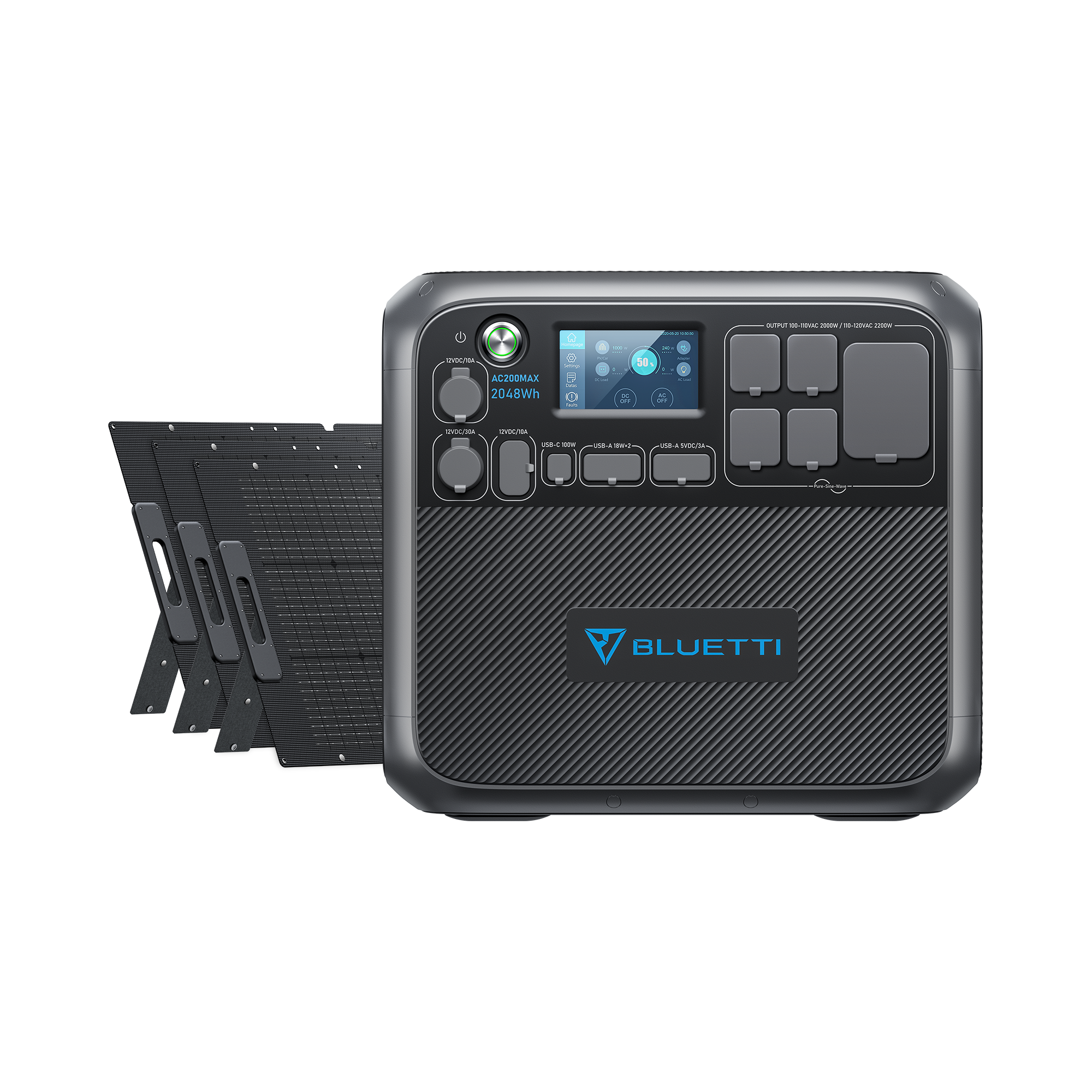Your cart is empty
Shop our productsCamping is a great way to take a break from the hustle and bustle that is today's life. It allows you to connect with nature while reflecting on your life. But the camping experience can be ruined if you don’t have a reliable source of electricity. This article provides practical tips on how you can get electricity while camping.
Why Do You Need Electricity When Camping?

Whether you’ll be camping in a dedicated camping site or a non-designated campground (dispersed camping), you’ll need a source of electricity. This is to ensure your devices are charged throughout the camping trip and also to run electrical appliances like an electric camping stove.
Furthermore, having a source of power can make the camping experience more convenient and comfortable. In other cases, you might need electricity to run medical devices like insulin pumps. As you can see, having a source of electricity is a crucial aspect to consider.
And there are many options to choose from. You can bring solar panels, a power bank, portable power station, or a generator. Each comes with its advantages and disadvantages. As such, you should choose one that meets your power needs and is within your budget.
What To Consider When Choosing a Source of Power
What should guide you to choosing a source of electricity? Let’s find out.
Power Requirements
First, you need to consider the devices and appliances you’ll be using during the camping trip. If you only need to charge your phone, laptop, and GPS device, you don’t need a powerful source of electricity. In fact, a robust power bank can make the cut.
On the other hand, if you’ll be using several devices like a camera, mini-fridge, electric stove, and a lighting system, you might need a robust power source. In this case, a portable power station or solar generator can be a perfect fit.
And determining your power requirements is as easy as listing the wattage of the devices you’ll be using. That way, you can choose a power source that will meet your energy needs.
Length of The Camping Trip
Next, consider how long you’ll be camping. Is it for the weekend? A week? Perhaps a month? Whichever the case, the power needs will be different. Camping for a weekend might require a conventional power bank or a small portable power station.
A month-long camping trip will, ofcourse, require a robust source of power. You might need a high-capacity solar generator and solar panels with high power output.
Type of Camping
There are different types of camping with each having unique power needs. If you’ll be camping in a dedicated campground, you might not need a power source since most have electrical hookups. You just need an extension cord to connect your devices.
Of course, you don’t need to bring a power station for glamping. However, you’ll need a robust source of electricity for wild and dispersed camping. Car camping might require you to bring a portable power station or generator. You’ll be using them for lighting, cooking, and charging your devices.
Your Budget
Finally, your budget will determine what source of electricity you’ll bring along during the camping trip. If you are camping on a budget and need a reliable source of power, you can buy smaller portable power stations. Some premium options sell for as less as $500. But if you are willing to break the bank, consider high-capacity units.
Sources of Electricity When Camping
Now that you know what you need to consider when choosing a power source for camping, here are several electricity options you can consider.
Portable Power Stations
Portable power stations are similar to batteries but on a larger scale. They have a higher capacity and come with additional features such as outlet and inlet ports. Premium units come with apps for remote control and monitoring. But that’s not all, they might also have an LCD display and buttons for intuitive user experience.
As you’d expect, they can provide power for hours or days on a single charge. Speaking of charging, they afford you several charging options. For example, you can recharge them using solar, AC outlets, or conventional generators. The best part is that they can charge multiple devices simultaneously and provide high power output to run medium to large appliances.
For example, the BLUETTI AC200L Portable Power Station has a 2048Wh capacity, which can run multiple devices. It can run a cooling fan for over 70 hours, a refrigerator for more than 30 hours, and keep your lights on for days. The model has an impressive 2400W rated power, ensuring your appliances are powered seamlessly.
As mentioned, premium power stations have apps for remote control. And the BLUETTI AC200L is no exception. You can connect the app to the power station via WiFi or Bluetooth. It is extremely quiet, making it an ideal power source for wild and dispersed camping.
Portable Solar Generators
Another ideal source of electricity are portable solar generators. As the name suggests, they mainly use solar energy to charge their batteries. However, they can also come with other charging options such as AC and lead-acid batteries. Most generators have a higher capacity and power output than portable power stations.
They might come bundled with solar panels since this is meant to be their primary source of power. Like portable power stations, they allow you to charge or connect multiple devices simultaneously, making your camping experience more exciting.
The BLUETTI AC200MAX + 3*PV200D Solar Generator Kit is a perfect example. It comes bundled with three 200W solar panels, which allow quick and seamless recharging of the generator. It also has an impressive 2200W rated power and 4800W surge wattage. This means it can power small to medium camping appliances with ease. No overloading, no downtime.
Thanks to the 2048Wh capacity, you can rest assured it will run throughout the night so you can light your camping tent or cook uninterrupted. It also comes with an app so you can monitor its charging progress remotely. Thanks to its water and dust-proof feature, it is an ideal option for camping.
Portable Power Banks
If you’ll be camping for a weekend and have fewer devices, you might consider using a power bank. These lightweight and compact gadgets allow you to charge devices such as laptops, smartphones, flashlights, and other small gadgets.
They are not as powerful as solar generators or power stations, but still provide ample juice to keep your communication devices on.
Solar panels
Solar panels are another popular source of electricity for campers. They are lightweight, easy to use, and do not require settings adjustment. They provide renewable energy to power appliances and charge devices. And since most camping solar panels are foldable, transporting them from one camping ground to another becomes seamless.
Unfortunately, they are only useful during the day, especially if you don’t have a battery storage system. As such, you should consider them if you’ll be camping in an area with plenty of sunlight.

For example, the BLUETTI PV350 Solar Panel provides high power output to charge and run different devices. It has an impressive 23.4% conversion rate, allowing you to take advantage of peak sun hours.
What to Consider When Choosing a Power Source for Camping
The first aspect you need to consider is the power output. You need an electricity source with a high power output if you’ll be using many devices simultaneously. Conversely, a low power output source of electricity is ideal for smaller gadgets such as smartphones and flashlights.
Another aspect to consider is portability, especially for power stations and generators. You don’t want to go camping with a bulky power station, making it hard to transport it where needed. You need a unit that you can easily carry from one camping tent to another. A unit you can place on the ground or on a camping table.
The device should also be easy to use. That is, it should have an LCD display, tactile buttons, and maybe an app for remote monitoring. Connecting devices should not be a hassle. As such, consider a unit with several output ports.
Recharging the power station or generator should not be an uphill task. Consider units that have several recharging methods like solar, AC, lead-acid battery, and a generator. In short, you should be able to recharge it with just about any source of power.
Finally, consider the fuel source. Is it using fossil fuels or renewable energy? Most power stations and solar generators use solar panels. However, this can be limiting if solar is the only recharging method. On the other hand, gas generators emit toxic gasses, harmful to your health and detrimental to the environment. Furthermore, you’ll need to carry adequate natural gas to last the camping period.
Final Thoughts
As you can see, there are different sources of electricity for camping. You can use portable power stations, solar generators, gas generators, solar panels, or power banks. Consider your power requirements when choosing a source of electricity. If possible use devices powered by solar panels since they are eco-friendly and quiet during operation.
Shop products from this article
You May Also Like

What Does a 30% Federal Solar Tax Credit Mean and How to Apply?
Governments around the world are offering programs that encourage homeowners to switch to solar energy. Among the most notable programs is the 30% Federal Solar Tax Credit. It reduces your...

Deadly Flooding Devastates U.S. South and Midwest — What You Need to Know

























































































































































































































































